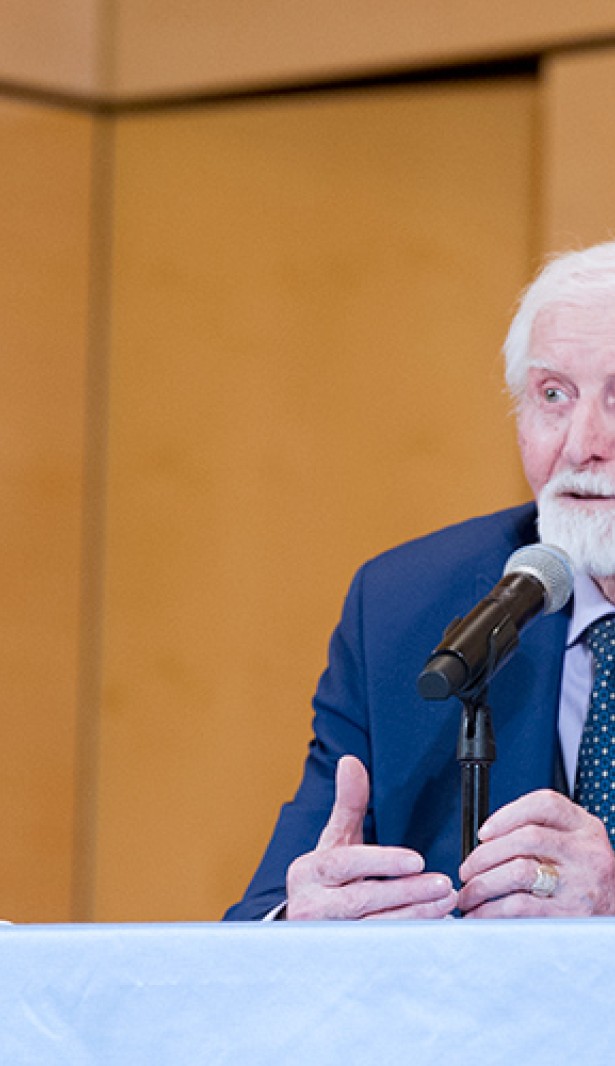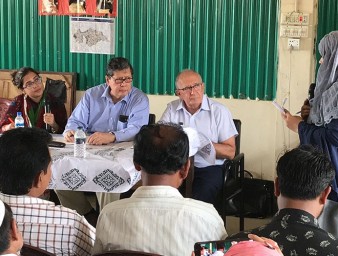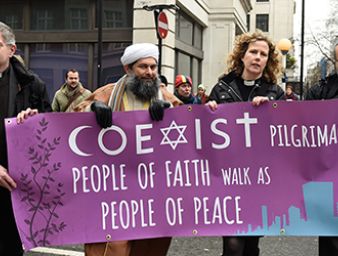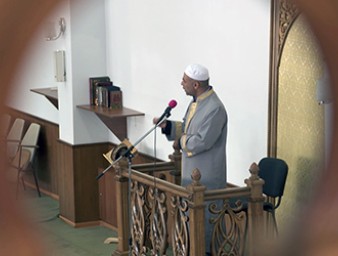Benjamin Orenstein, Holocaust survivor
01 February 2019
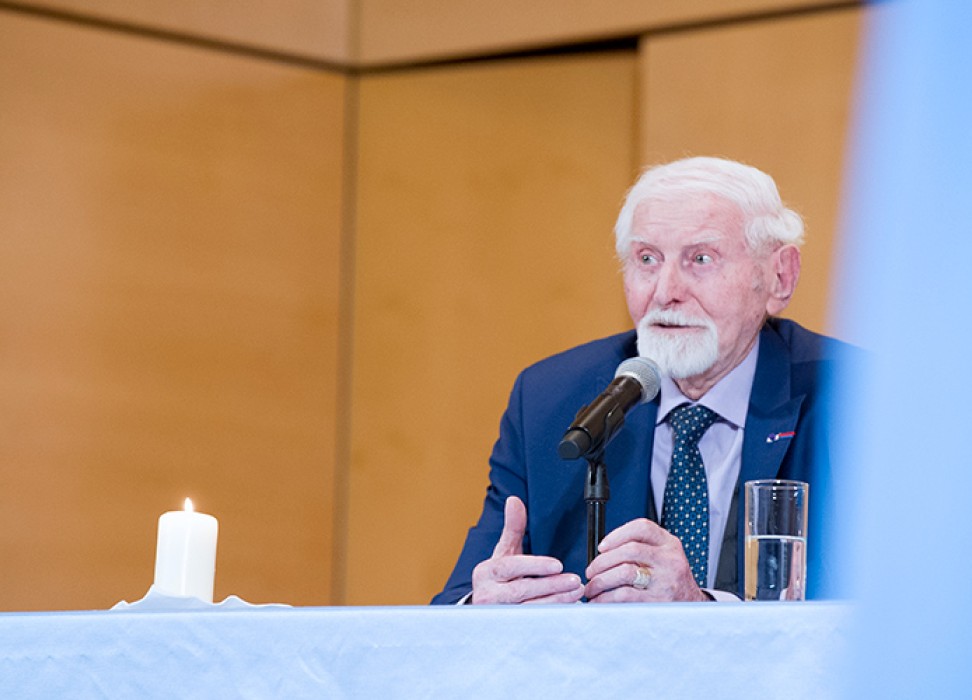
"Our village was under occupation and my father, who had a beautiful beard like most self-respecting Jews, felt threatened. German soldiers would capture bearded men and cut-off their beards with their bayonets. Sometimes skin would come off as well," Benjamin Orenstein, a Holocaust survivor recalled.
"The soldiers would take pictures of their victims and say, "Oh, I will show this to my fiancée!" But when my sister and I saw my father when I came home, we burst out in tears."
Orenstein was born 93 years ago in Annopol, south-west of Poland, the youngest of five siblings in a practising Jewish family. He said that antisemitism was present before, during and after the Second World War. After their arrival, it took the German army only 10 days to vanquish Poland.
Those soldiers were soon replaced by the SS who put in place a code of conduct for the Jewish villagers: they had to wear white armbands featuring the Star of David. For those who refused, death was their sentence.
Every day, the noose of oppression was tightened; first, the army soldiers desecrated the village’s synagogue and burned all its sacred books. The next day, they grabbed two notables on the village’s bridge and executed them. "Their third victim was my cousin, Jacob Orenstein; he was killed in front of his two children and his wife while trying to protect her from soldiers’ advances," Orenstein said.
By 1941, the SS had transformed Annopol into an open-air ghetto with a one-kilometre perimeter, forbidding the villagers to exit.
"They did not cram us together to live; they crammed us together to die. We were not dying fast enough for [the SS], so they came up with the "Final Solution" in 1942."
First, they subjected all the villagers to hard labour; for Orenstein, it was breaking rocks at the nearby quarry. Then, the population was taken to labour camps. Orenstein’s father was the first in his family to be rounded up and deported to Ieniszow; he was 60 years old.
"My brother Haim was one of the overseers of that camp. He asked me if I was ready to take my father’s place. I said yes," Orenstein said - he was 15 years-old at the time. "I had no idea what a camp was. But could I have said no? My father would have died in that camp."
Soon, Orenstein would escape. He said there were many evasions from Nazi concentration camps, but no one survived. Those who found them in the forest, sleeping "under the stars" would bring them to SS soldiers for a reward: a litre of petrol, a kilo of sugar and half a bottle of vodka.
"That was the cost of a Jewish life."
A cold march towards death and freedom
A few days after Orenstein’s return to his village, his brother Léon was taken to Janowska labour camp. Annopol’s Jews lived every day with a death sentence over their heads. When the time for deportation came, one commander had a right to life or death in his hands.
Orenstein and his three brothers were then deported to neighbouring Rachow in October 1942, and later with only one of his brothers to Budzyn. A few months later, that brother was deported back to Rachow where in 1943 he was executed with the rest of the prisoners. Orenstein later learned that, after having walked for days, his remaining brothers were killed in Belzec extermination camp. They died asphyxiated in less than 35 minutes. By the end of 1943, Benjamin Orenstein was the last surviving member of his family.
"Had I been alone in those camps, I wouldn’t have survived. When I was tortured, my brothers nursed me, they protected me," Orenstein recalled. "I saw dozens of people executed, including my mother’s family members."
"I don’t know how to make you feel what life was back then."
He paused. "It is unimaginable."
After reaching Ostrowiec camp in May 1944, Orenstein was deported to Auschwitz on 4 August where his identification number B 4416 was tattooed on his left arm. A few days later, he was taken to sub-camp Fürstengrube where he was forced to work with other deportees in old coalmines.
In January 1945, the SS escorted the prisoners to Dora; that would be Orenstein’s last camp. For 10 days, they walked weakened in the harshness of the cold. "On each side of the Death March lay thousands of dead bodies," Orenstein recalled.
It was on 11 April 1945 that the American army freed Dora camp. Orenstein had suffered severe frostbite and an infection in his leg. The Red Cross took him to Thionville in France, and after one of his cousins contacted him, he finally moved to Lyon where he has been living since 1951.
Benjamin Orenstein recounted his story on 28 January 2019 in Geneva where the UN held a Holocaust memorial ceremony in Palais des Nations, its European headquarters.
Seventy years ago, in the wake of the Second World War, the Universal Declaration of Human Rights marked a turning point in humanity’s history. It became the first universally accepted document that acknowledges that the "disregard and contempt for human rights have resulted in barbaric acts which have outraged the conscience of mankind."
Orenstein is one of the last witnesses of the Nazi concentration camps. At 93, he perpetuates the memory of the Holocaust by telling his story to pupils in primary and secondary schools across France.
